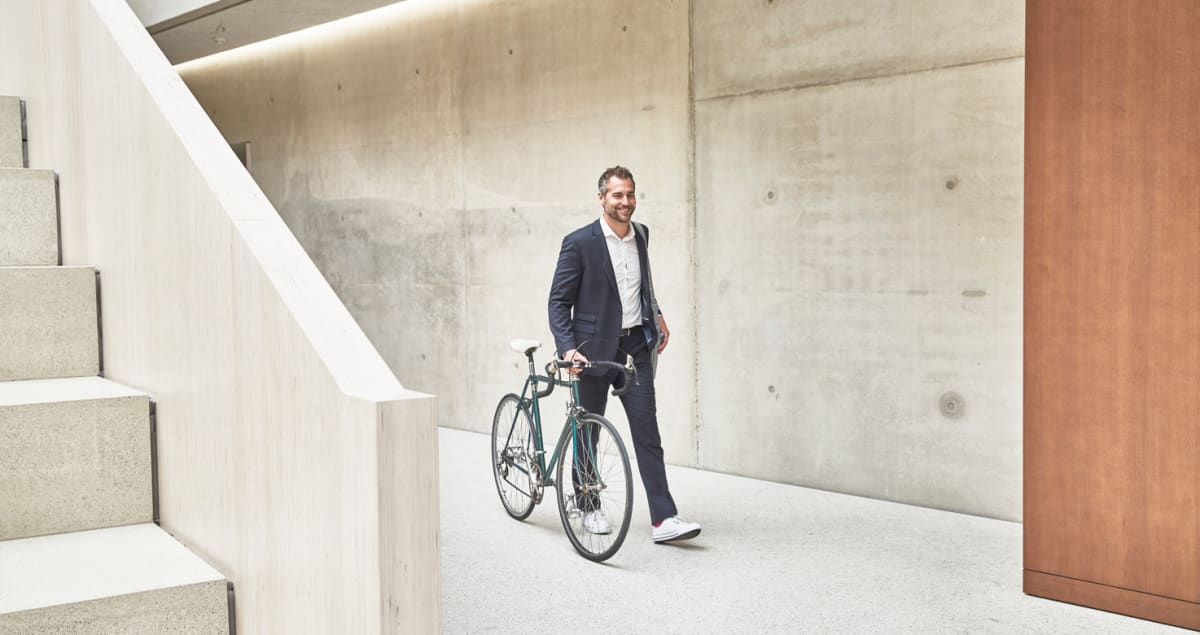Hybrid working offers employees the best of both worlds: time spent working at home or at a nearby flexible workspace, plus vital in-person interaction during visits to the company HQ.
Cutting down on commuting
Everyone hates commuting, whether it’s in a car stuck in gridlocked traffic or on a packed bus or train. It uses up precious time and also costs money we’d prefer to spend elsewhere.
And it’s bad for us. A report by the UK’s Royal Society for Public Health in 2016 highlighted the health impacts of commuting by rail, bus or car, showing that longer commute times are associated with increased stress, higher blood pressure and BMI, and reduced time available for health-promoting activities such as exercising and sleeping.
A reduction in commuting, even for just two or three days a week, can lead to a significant increase in wellbeing. And if companies adopt the ‘hub-and-spoke’ workplace model, offering employees the opportunity to work in a satellite office close to their homes, the short journey is likely to be undertaken on foot or by bicycle, with added benefits to health.
Local benefits
Having an extra half hour in bed, calmly getting up and seeing the kids off to school and then sitting down at your home desk or strolling to a nearby flexspace… The peace of mind that comes from working locally can’t be underestimated. A global survey of 9,000 knowledge workers by Slack found that as well as more time and less money spent on commuting, respondents valued an improved work-life balance and a less stressful working environment as perks of working close to home. “With more time and fewer office stressors, on average, they seem to experience a boost in their quality of life,” it reported.
The chance to spend more time with family and loved ones (not to mention pets: see below) has obvious positive effects on mental wellbeing. And errands that previously could only be done by taking time off work can more easily be fitted into a daily schedule, as can caring for a relative or loved one, or even just finding the time to see a child play a key basketball game.
Office benefits
While there are benefits to working at home, there are also potential negatives. During periods of lockdown during the pandemic, many complained of a sense of isolation: those who live on their own, in particular, can suffer from loneliness when their only contact with colleagues comes via a screen. And the screen itself can become a burden: so-called ‘Zoom fatigue’ is a common complaint, referring to the sense of exhaustion that can result from hours of video calls.
This is why time spent in an office by hybrid workers is crucial to wellbeing, offering the opportunity to see and interact with colleagues in the real world. Collaboration and team-building are far more practical in an office scenario, leading to greater job satisfaction and a feeling of being more connected to company culture. A survey of 12,000 professionals in the US, Germany and India by Boston Consulting Group (May- June 2020), found that during lockdown they missed the connections they had with colleagues in the office, especially “being able to spontaneously walk to a coworker’s desk and discuss an issue” and “social gatherings at work”. Those social moments and chance encounters at the watercooler, which are almost impossible to recreate when working at home, offer the opportunity for idle chat, creative discussion and the growth of personal relationships. And this can be particularly crucial for new entrants to the workplace.
“It is a particular problem for young new graduates moving to an unfamiliar city on their first job,” says Robin Dunbar, Emeritus Professor of Experimental Psychology at the University of Oxford. “With no family or friends nearby, work is the only place they can find friends and arrange social events. ‘We come in to work to see our friends!’ has been their response to surveys.” Office time isn’t just about professional collaboration – it’s also essential for our need to connect as human beings.
Partner with IWG to build a healthier working culture, and discover more about how the hybrid approach can help your business achieve its sustainability goals in our white paper.






